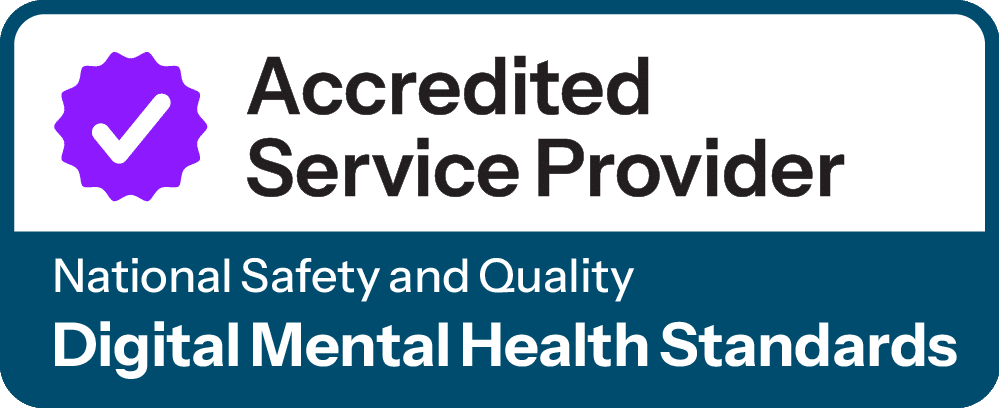
Alcohol withdrawal
When a person who has been drinking heavily for a long period of time stops alcohol suddenly or cuts down a lot, they might experience alcohol withdrawal. Withdrawal is the medical term used for the cluster of physical and psychological symptoms that often occur.
While alcohol withdrawal varies in severity, its worst case is life threatening for a small proportion of people.
What Causes It?
Alcohol affects our brain chemicals, or ‘neurotransmitters’, which make up the communication pathway our brains’ use to control our thoughts, feelings and actions. A drunk party goer whose level of intoxication has hijacked their ability to speak clearly, keep their balance, control their impulses, and apply sound judgement is a good example of neurotransmitters gone awry.
Two important neurotransmitters need special mention as they relate to alcohol withdrawal. One is GABA, which has a calming effect on the brain and body, and the other is glutamate which has a stimulating effect. For physical and psychological health, GABA and glutamate must work together.
Alcohol affects us by boosting levels of calming GABA, while decreasing levels of rousing glutamate. This gives us an overall feeling of relaxation, but generally dulls our responses. For this reason, alcohol is often referred to as a ‘depressant’.
When the body has been exposed to alcohol in large amounts over time, the brain works hard to keep itself alert and awake despite the regular drinking. It does this by reducing the amount of calming GABA available and often increasing levels of stimulating glutamate. This process is known as ‘tolerance’ to alcohol, and explains why very heavy drinkers can appear to still be walking and talking fairly normally after a big night, while people who usually drink much less may be passed out on the couch.
If a person who has developed a tolerance to alcohol stops drinking abruptly, they might experience withdrawal because it usually takes some time for the body to build up its natural stores of calming GABA.
In a nutshell, alcohol withdrawal is an overstimulated central nervous system that can’t switch itself off.
What are the symptoms?
The symptoms of alcohol withdrawal range from mild to severe, and depend on how much a person drank, for how long, and their physical and mental health. People who have had withdrawal before are more likely to have it again.
In general, symptoms show an overstimulated brain and body – agitation, anxiety, shaking hands (tremor), nausea, sweating, sleeplessness, racing heartbeat, high blood pressure, and elevated temperature are typical.
In severe cases, the person may experience seizures (fits), which is a medical emergency.
In rare cases, people may see and hear things that aren’t there (hallucinations), while about 5% experience a potentially life threatening form of withdrawal known as Delirium Tremens (DTs) that usually starts 2-5 days after the last drink and involves vivid hallucinations in addition to typical symptoms.
How long does it last?
Simple withdrawal can begin about 6-24 hours after the last drink, peaks around days 2-3, and generally subsides by about day 5.
Complicated withdrawal that involves seizures, hallucinations or Delirium Tremens may extend to 10 days or more.
What is the treatment?
The aim of treatment is to monitor a person’s progress through withdrawal, reduce overstimulation of the nervous system, and prevent complications such as seizures, hallucinations and Delirium Tremens.
Medications such as benzodiazepines (e.g. Valium) that calm the brain and body are generally used according to the severity of withdrawal symptoms. These medications are then tapered off as the person’s own stores of GABA are replenished.
Accurate assessment is crucial to completing planned withdrawal safely, and will indicate if the person can be managed with support at home, should attend a clinic daily, or be admitted to a hospital when withdrawal is deemed likely to be moderate to severe, or complicated. Assessing for alcohol withdrawal should be done by a trained professional, so don’t be tempted to self-assess via Doctor internet!
It’s important to understand that getting through withdrawal isn’t the same as getting professional treatment for alcohol problems though, and without ongoing help, most people slip back into old patterns of drinking.
Our friends at Clean Slate offer home based withdrawal through telehealth with a year post withdrawal support to keep you on track.
Enjoying alcohol socially in reasonable amounts can boost your mood and help you bond with others. But if you drink alone, or a lot, it can affect the way you interact with other people, including friends and loved ones. Drinking less (or giving up altogether) can help you to respond more positively with others and lets you focus on your relationships, work, and health.
You’ll probably find that you’re more able to navigate the social landscape, rather than just escaping it. You’ll have more time hangover-free to be a better spouse, parent, friend and employee.
Where can I find more information?
You might have heard that a regular glass of red wine is good for your heart. In fact, the jury is still out on that one, and if it is true, then it’s only true for very light drinkers (less than one standard drink a day) – increasing the dose certainly doesn’t increase the effect in this case! If you drink more than that, you increase your blood pressure, levels of fat called triglycerides, and chances of heart failure.
If your blood pressure is too high, you might be able to bring it down by doing one simple thing: giving up alcohol. Even just moderating your intake can help. It may not reduce your blood pressure enough though, so it’s best to talk to your doctor about this and other things you can do to help yourself.
National alcohol & other drugs hotlines
Call the National Alcohol and Other Drugs Hotline for free and confidential advice about alcohol and other drugs.
CounsellingOnline
CounsellingOnline is a confidential and free of charge online counselling service for issues related to alcohol and other drugs. It is available 24/7 across Australia.











I have the app on my i phone, I was wondering if I can down load an app for my computer hp